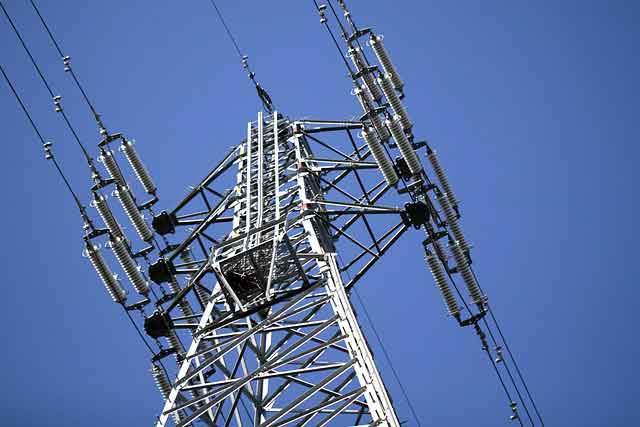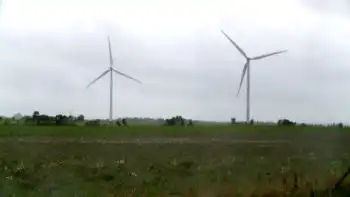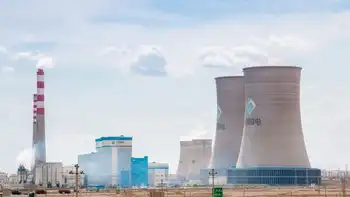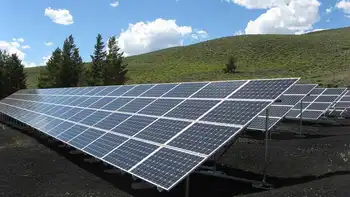Ottawa Launches Sewage Energy Project at LeBreton Flats

Arc Flash Training CSA Z462 - Electrical Safety Essentials
Our customized live online or in‑person group training can be delivered to your staff at your location.

- Live Online
- 6 hours Instructor-led
- Group Training Available
Ottawa Sewage Energy Exchange System uses wastewater heat recovery and efficient heat pumps to deliver renewable district energy, zero carbon heating and cooling, cutting greenhouse gas emissions at LeBreton Flats and scaling urban developments.
Key Points
A district energy system recovering wastewater heat via pumps to deliver zero carbon heating and cooling.
✅ Delivers 9 MW heating and cooling for 2.4M sq ft at LeBreton Flats
✅ Cuts 5,066 tonnes CO2e each year, reducing greenhouse gases
✅ Powers Odenak zero carbon housing via district energy
Ottawa is embarking on a groundbreaking initiative to harness the latent thermal energy within its wastewater system, in tandem with advances in energy storage in Ontario that strengthen grid resilience, marking a significant stride toward sustainable urban development. The Sewage Energy Exchange System (SEES) project, a collaborative effort led by the LeBreton Community Utility Partnership—which includes Envari Holding Inc. (a subsidiary of Hydro Ottawa) and Theia Partners—aims to revolutionize how the city powers its buildings.
Harnessing Wastewater for Sustainable Energy
The SEES will utilize advanced heat pump technology to extract thermal energy from the city's wastewater infrastructure, providing both heating and cooling to buildings within the LeBreton Flats redevelopment. This innovative approach eliminates the need for fossil fuels, aligning with Ottawa's commitment to reducing greenhouse gas emissions and promoting clean energy solutions across the province, including the Hydrogen Innovation Fund that supports new low-carbon pathways.
The system operates by diverting sewage from the municipal collection network into an external well, where it undergoes filtration to remove large solids. The filtered water is then passed through a heat exchanger, transferring thermal energy to the building's heating and cooling systems. After the energy is extracted, the treated water is safely returned to the city's sewer system.
Environmental and Economic Impact
Once fully implemented, the SEES is projected to deliver over 9 megawatts of heating and cooling capacity, servicing approximately 2.4 million square feet of development. This capacity is expected to reduce greenhouse gas emissions by approximately 5,066 tonnes annually—equivalent to the electricity consumption of over 3,300 homes for a year. Such reductions are pivotal in helping Ottawa meet its ambitious goal of achieving a 96% reduction in community-wide greenhouse gas emissions by 2040, as outlined in its Climate Change Master Plan and Energy Evolution strategy, and they align with Ontario's plan to rely on battery storage to meet rising demand across the grid.
Integration with the Odenak Development
The first phase of the SEES will support the Odenak development, a mixed-use project comprising two high-rise residential buildings. This development is poised to be Canada's largest residential zero-carbon project, echoing calls for Northern Ontario grid sustainability from community groups, featuring 601 housing units, with 41% designated as affordable housing. The integration of the SEES will ensure that Odenak operates entirely on renewable energy, setting a benchmark for future urban developments.
Broader Implications and Future Expansion
The SEES project is not just a localized initiative; it represents a scalable model for sustainable urban energy solutions that aligns with green energy investments in British Columbia and other jurisdictions. The LeBreton Community Utility Partnership is in discussions with the National Capital Commission to explore extending the SEES network to additional parcels within the LeBreton Flats redevelopment. Expanding the system could lead to economies of scale, further reducing costs and enhancing the environmental benefits.
Ottawa's venture into wastewater-based energy systems places it at the forefront of a growing trend in North America. Cities like Toronto and Vancouver have initiated similar projects, while related pilots such as the EV-to-grid pilot in Nova Scotia highlight complementary approaches, and European counterparts have long utilized sewage heat recovery systems. Ottawa's adoption of this technology underscores its commitment to innovation and sustainability in urban planning.
The SEES project at LeBreton Flats exemplifies how cities can repurpose existing infrastructure to create sustainable, low-carbon energy solutions. By transforming wastewater into a valuable energy resource, Ottawa is setting a precedent for environmentally responsible urban development. As the city moves forward with this initiative, it not only addresses immediate energy needs but also contributes to a cleaner, more sustainable future for its residents, even as the province accelerates Ontario's energy storage push to maintain reliability.











